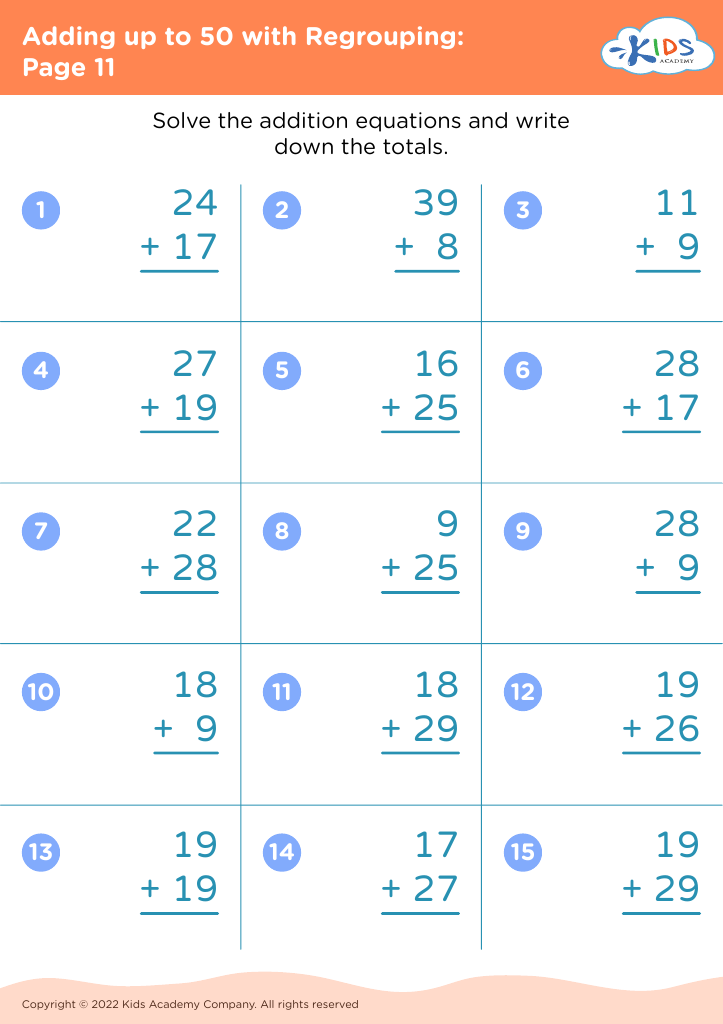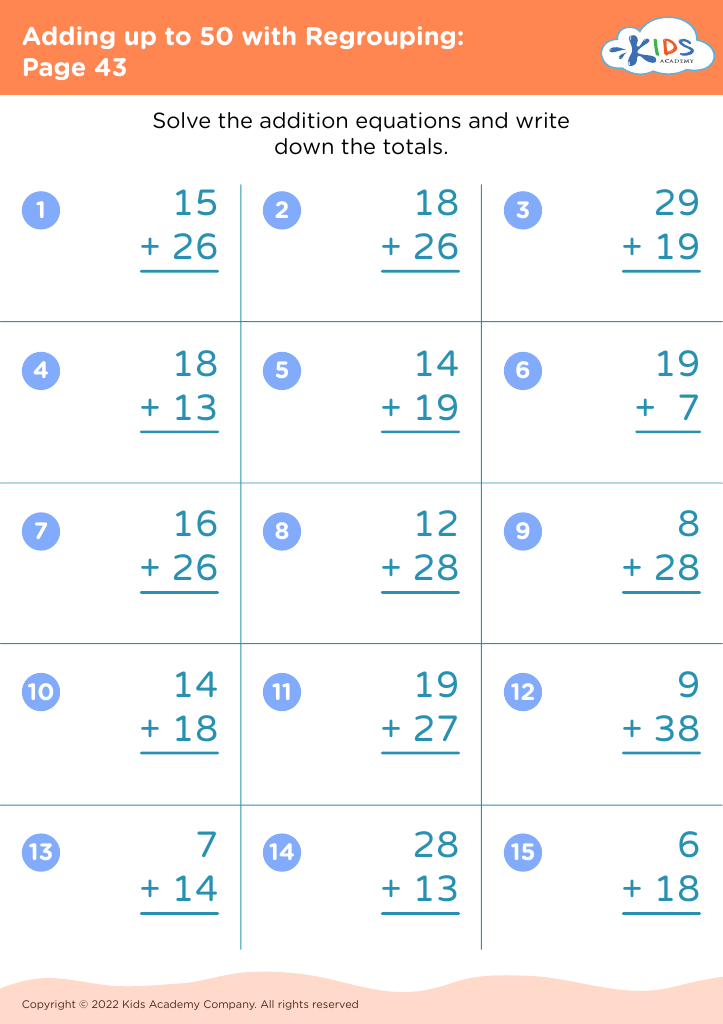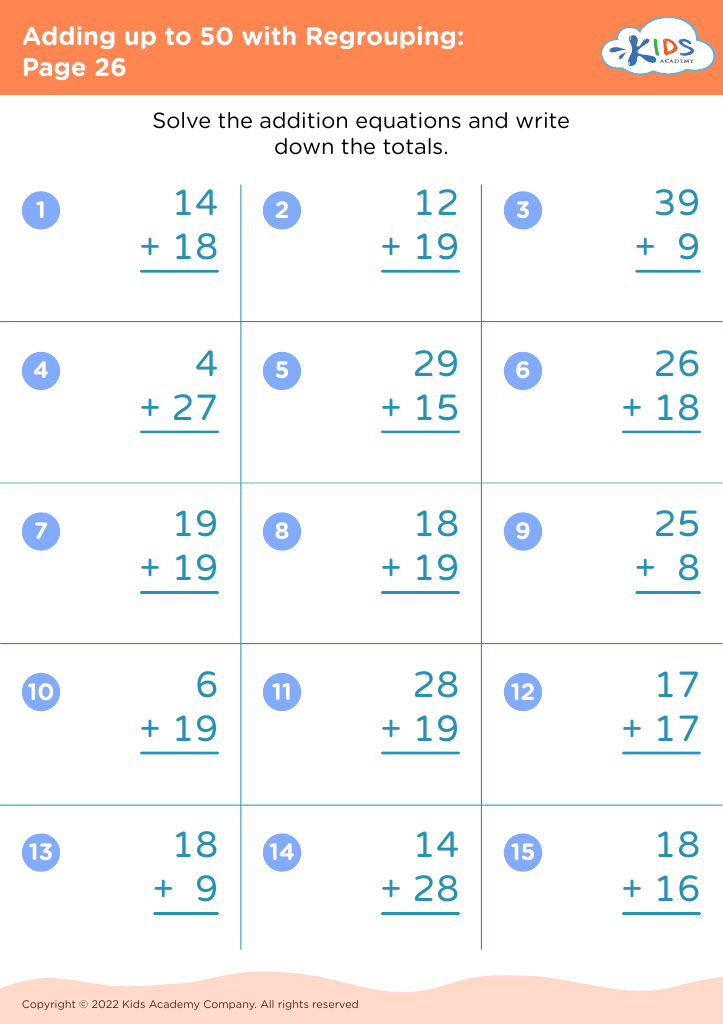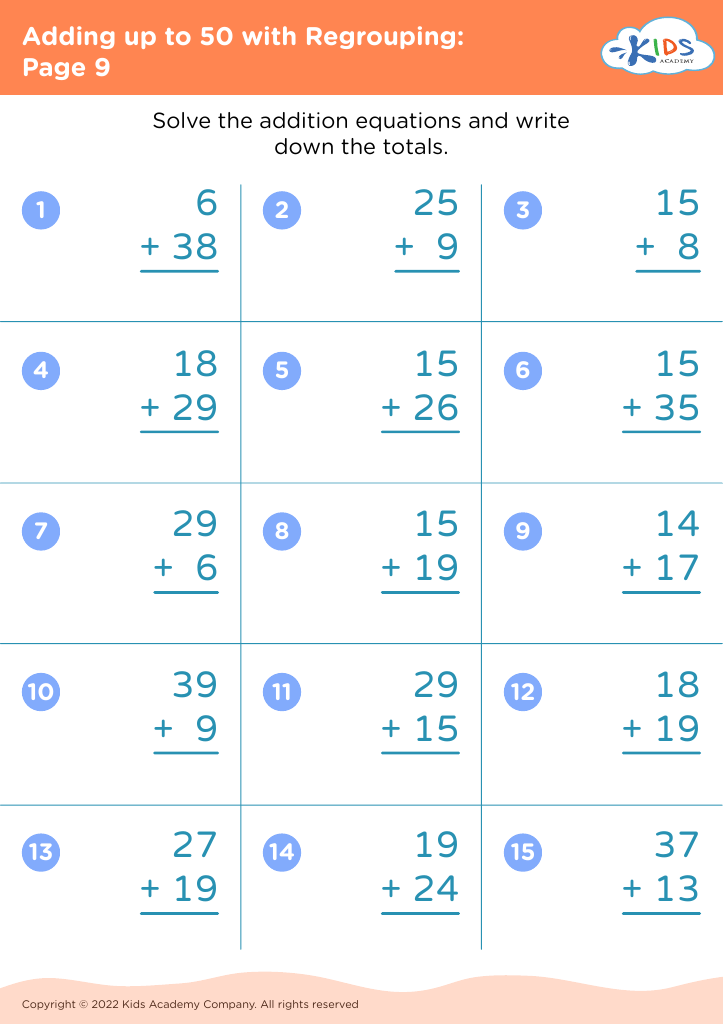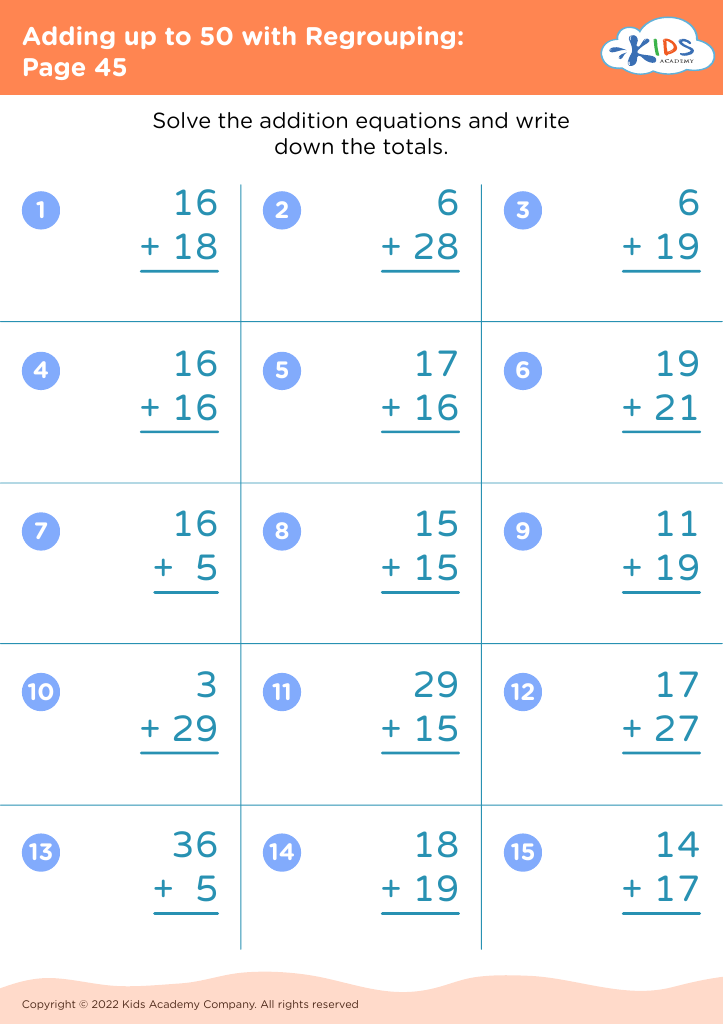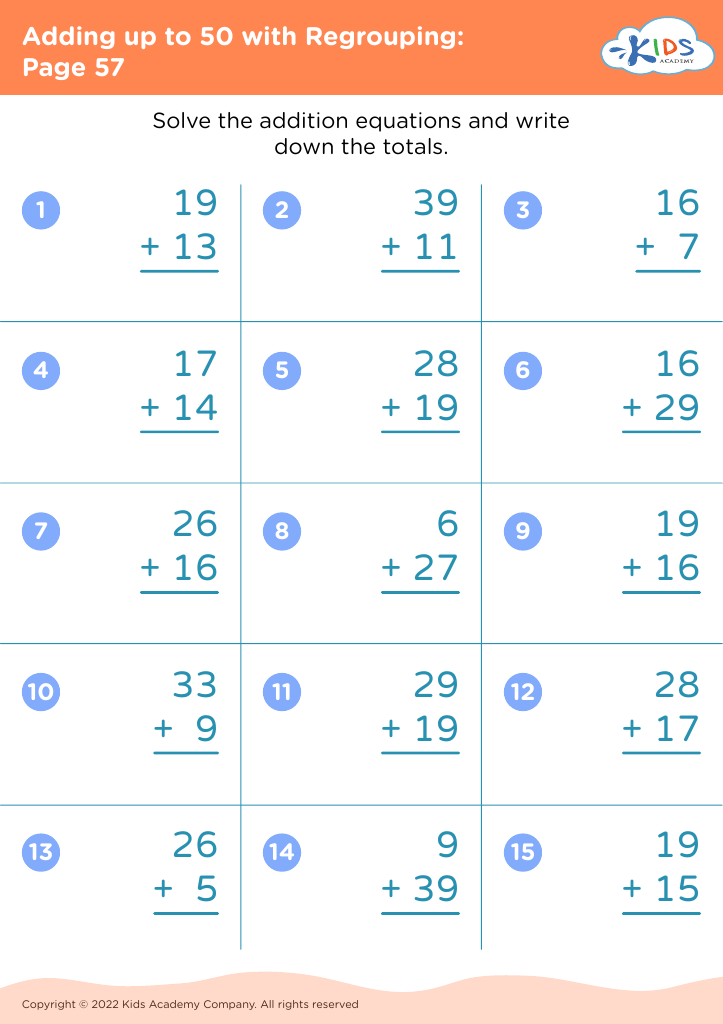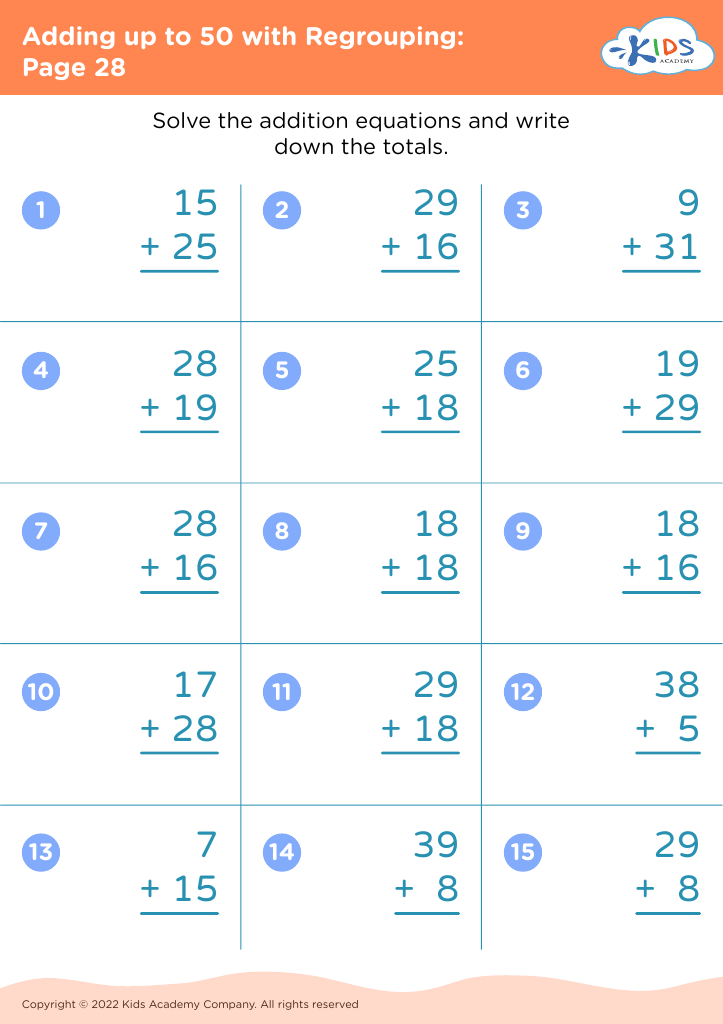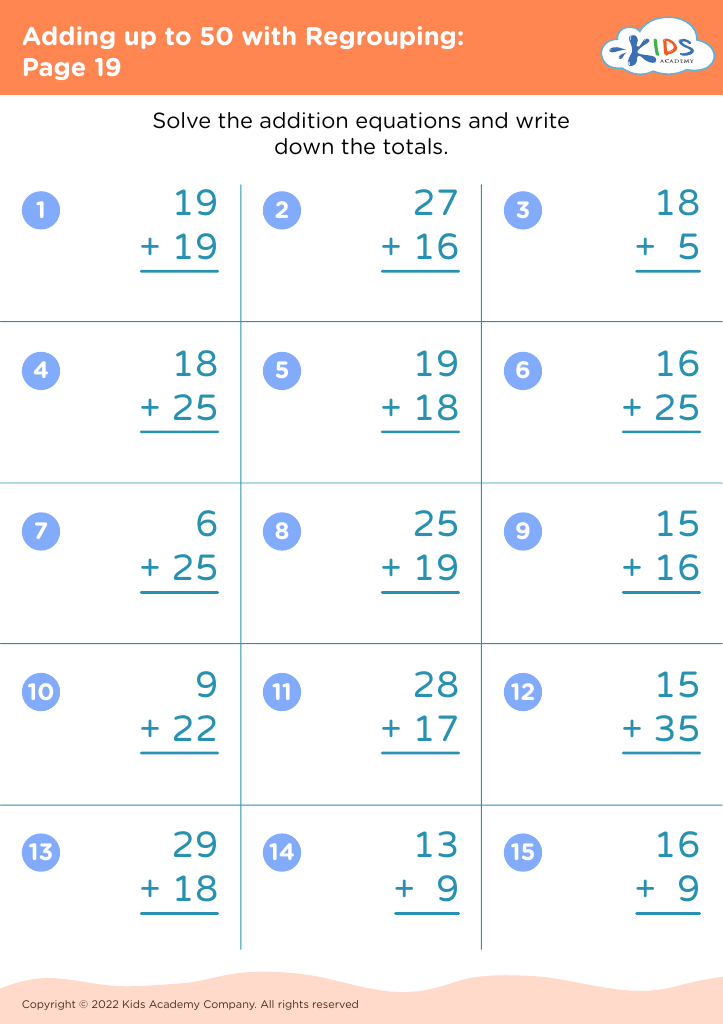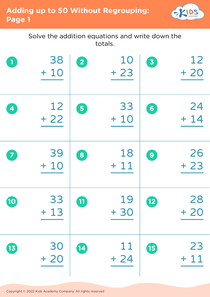Number Recognition Adding up to 50 with Regrouping Worksheets for Ages 5-8
14 filtered results
-
From - To
Boost your child's math confidence with our engaging Number Recognition Adding up to 50 with Regrouping Worksheets, designed for ages 5-8. These expertly crafted worksheets from Kids Academy help young learners master number recognition and fundamental addition skills, even including regrouping. Through a variety of fun and educational exercises, children will practice adding numbers up to 50, developing their ability to handle carry-over challenges seamlessly. Perfect for both in-class learning and home practice, these worksheets ensure a solid math foundation while fostering a love for mathematics. Give your child the tools they need to succeed in numbers with Kids Academy's trusted resources!
Number recognition and understanding addition up to 50 with regrouping are fundamental math skills crucial for children ages 5-8. This formative period is vital for developing a strong mathematical foundation, which affects future learning and confidence.
First, number recognition aids children in identifying and understanding numbers, a key skill for their everyday life, including measuring, telling time, and handling money. Mastery of these skills early on is linked to better math comprehension later.
Addition up to 50 with regrouping introduces children to the concept of place value and the idea that entire quantities can be broken down and restructured. Regrouping, where numbers are carried over, helps children understand how larger numbers are built from smaller parts. This cognitive skill is essential for more advanced math topics like subtraction, multiplication, and division.
Furthermore, early competence in addition fosters a sense of achievement and boosts self-esteem. Positive early experiences in math build a growth mindset, encouraging perseverance in problem-solving and learning.
Parents and teachers supporting children through engaging activities in a supportive environment can significantly alleviate mathematical anxiety and ensure long-term academic success. Early intervention in developing these arithmetic skills translates to higher academic achievement, affecting overall educational potential and career opportunities.


